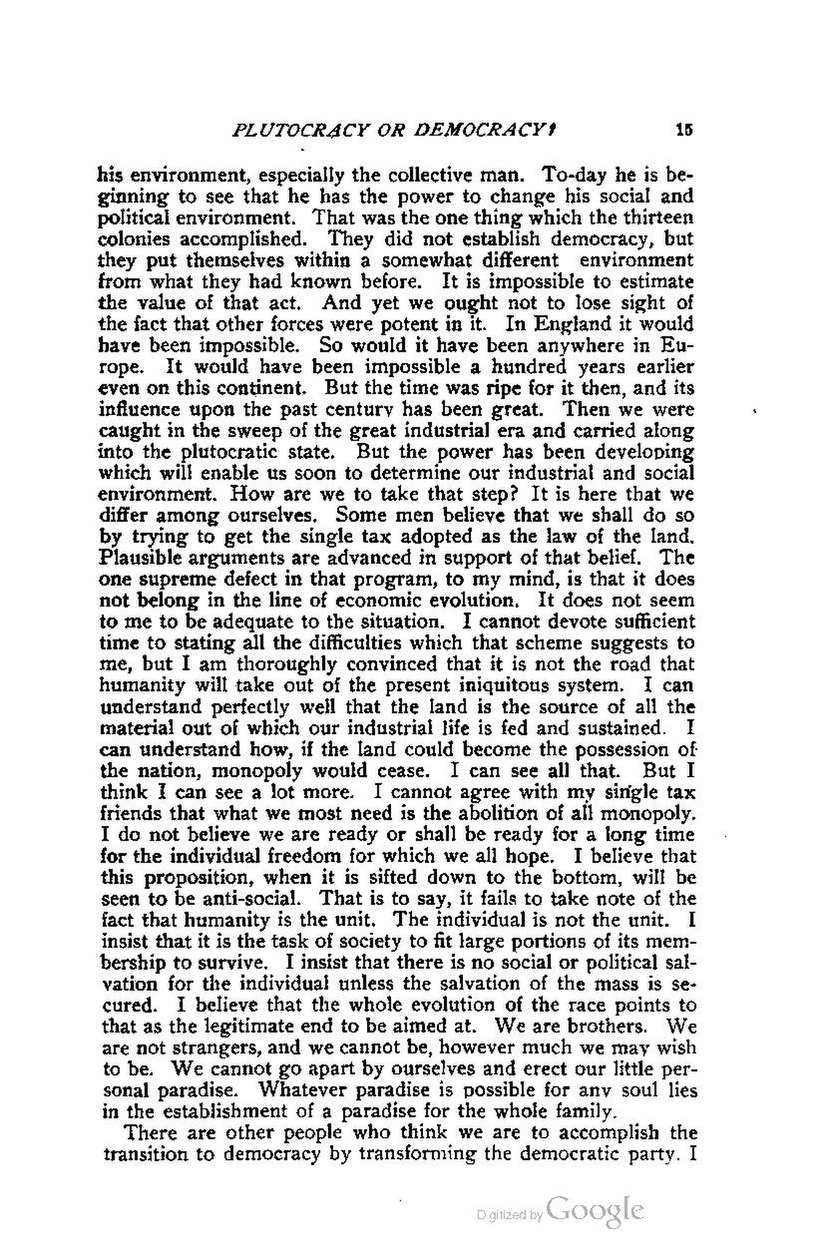his environment, especially the collective man. To-day he is beginning to see that he has the power to change his social and political environment. That was the one thing which the thirteen colonies accomplished. They did not establish democracy, but they put themselves within a somewhat different environment from what they had known before. It is impossible to estimate the value of that act. And yet we ought not to lose sight of the fact that other forces were potent in it. In England it would have been impossible. So would it have been anywhere in Europe. It would have been impossible a hundred years earlier even on this continent. But the time was ripe for it then, and its influence upon the past century has been great. Then we were caught in the sweep of the great industrial era and carried along into the plutocratic state. But the power has been developing which will enable us soon to determine our industrial and social environment. How are we to take that step? It is here that we differ among ourselves. Some men believe that we shall do so by trying to get the single tax adopted as the law of the land. Plausible arguments are advanced in support of that belief. The one supreme defect in that program, to my mind, is that it does not belong in the line of economic evolution. It does not seem to me to be adequate to the situation. I cannot devote sufficient time to stating all the difficulties which that scheme suggests to me, but I am thoroughly convinced that it is not the road that humanity will take out of the present iniquitous system. I can understand perfectly well that the land is the source of all the material out of which our industrial life is fed and sustained. I can understand how, if the land could become the possession of the nation, monopoly would cease. I can see all that. But I think I can see a lot more. I cannot agree with my single tax friends that what we most need is the abolition of all monopoly. I do not believe we are ready or shall be ready for a long time for the individual freedom for which we all hope. I believe that this proposition, when it is sifted down to the bottom, will be seen to be anti-social. That is to say, it fails to take note of the fact that humanity is the unit. The individual is not the unit. I insist that it is the task of society to fit large portions of its membership to survive. I insist that there is no social or political salvation for the individual unless the salvation of the mass is secured. I believe that the whole evolution of the race points to that as the legitimate end to be aimed at. We are brothers. We are not strangers, and we cannot be, however much we mav wish to be. We cannot go apart by ourselves and erect our little personal paradise. Whatever paradise is possible for anv soul lies in the establishment of a paradise for the whole family.
There are other people who think we are to accomplish the transition to democracy by transforming the democratic party. I
